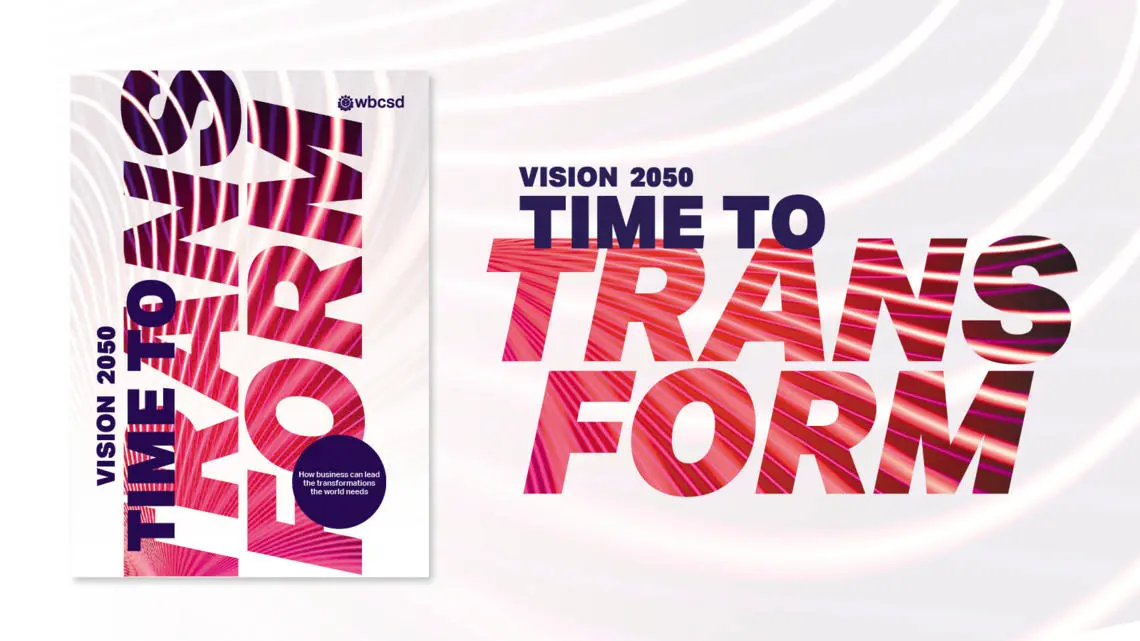Authors
Peter Bakker
If you are reading the Vision 2050: Time to Transform report with the idea that tomorrow is going to be much the same as today, then this is not for you. This is a report for change, urgent change even, starting now.
I am not exaggerating when I say this is one of the most comprehensive, forward-looking and pragmatic reports I have read to date. A report that has been developed over the past two years, by more than 40 global business leaders and a strong external review committee, building on the initial Vision 2050 report from 2010.
Our world is facing three pressing global challenges: the climate emergency, the loss of nature and growing inequality. Each of them, on its own, can endanger the safe operating space for humanity and the planet, as well as the license to operate for business. And if there is one thing that we have all learned from the COVID pandemic, it is how interconnected these challenges are.
We need a long-term vision that we can all rally behind: 9+ billion people living well, within planetary boundaries, by mid-century. Achieving this relatively simply worded vision requires a wholesale transformation of everything we have grown up with: energy needs to decarbonize; materials need to go circular; food needs to be produced sustainably and equitably and provide healthy diets.
The need to transform systems is rightfully the concept that everyone in sustainability is talking about; now, it needs to be backed up by actions. It is now or never. Hence, this report focuses on nine pathways of systems transformation, written in an actionable format. It should influence the strategic business agenda for this decade. And it should inspire you to put more focus and more ambition in the journey of your company and help you shape the agenda for your company’s transformation.
This report is not the usual “doom and gloom approach” to sustainability. On the contrary: it offers business practical suggestions and thus creates a story of opportunities. Moreover, I strongly believe that the innovative and distinctive part of this report is the need for leaders everywhere to change their mindsets toward building long-term resilience, toward a regenerative approach to business and ultimately toward reinventing capitalism. Transforming our global systems will take more than just engineers improving the products and services that business produces.
The most critical of these mindset shifts is the one about the reinvention of capitalism. This shift will ensure that the economic system, our incentives, the global accounting standards and the capital market valuations will no longer just be based on the financial performance of business but integrates the impact on the planet and people as part of how we define success and determine the enterprise value. The move to a capitalism of true value for all will accelerate the transformation toward 9+ billion people all living well, within planetary boundaries, faster than anything else.
I see this as a hugely exciting prospect, but I know that it is not an easy one. However, whether you like it or not, we are all changemakers now, with business having to play a leading role in the transformations toward Vision 2050, working together with governments, regulators, investors and all people. At WBCSD, we stand ready to support you making this happen in any way we can.
It is time to transform, it is time to think systems, it is time to create true value, now. I count on you to join us on the decisive journey of our generation.
For more information on the Vision 2050: Time to Transform report, visit www.timetotransform.biz
WBCSD news articles and insights may be republished in accordance with the Creative Commons Attribution-NonCommercial-NoDerivatives 4.0 International Public License, and in accordance with our Privacy Policy. All Content must be featured with due credits.
